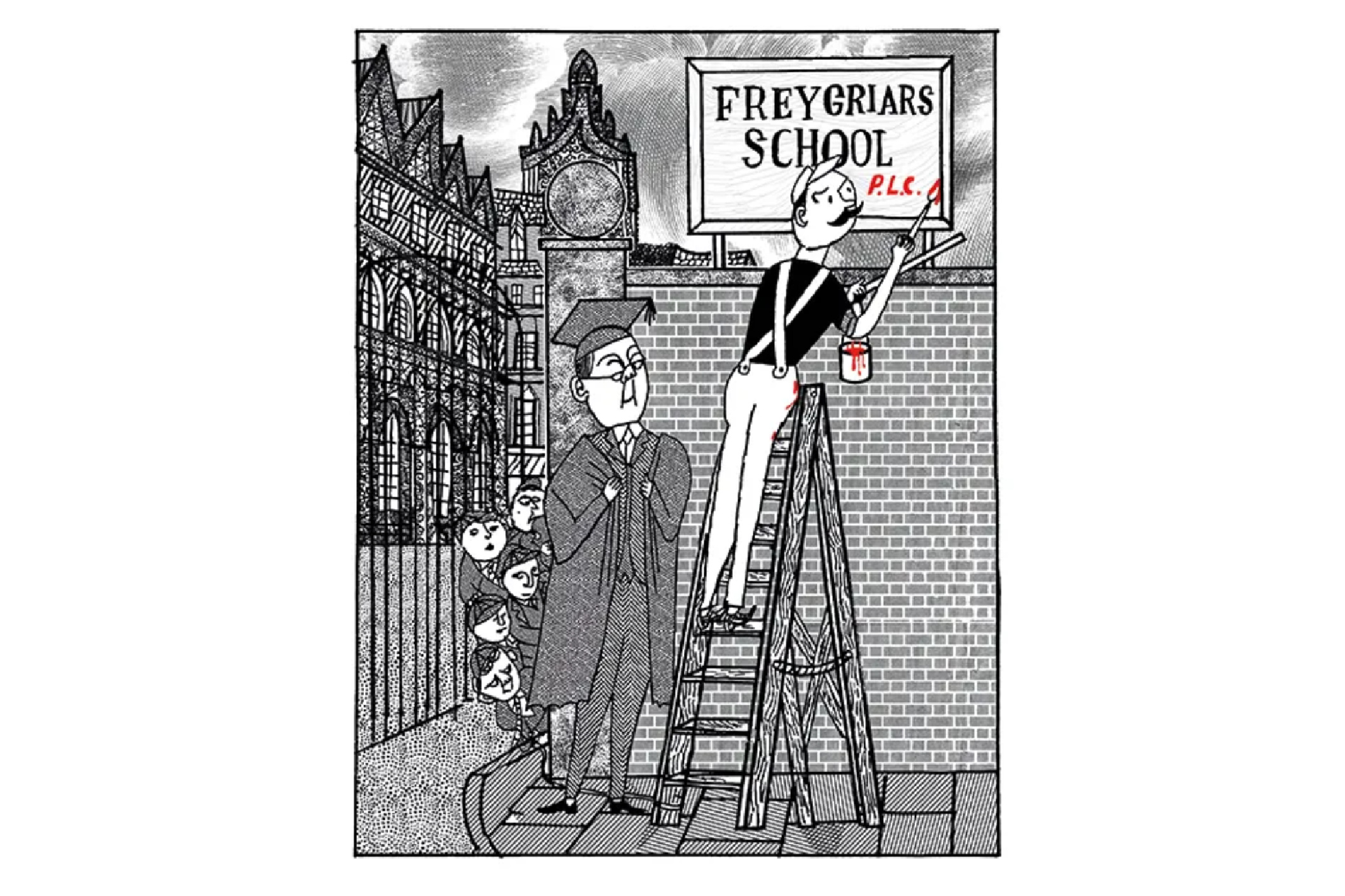For some parents, VAT on school fees is the straw that’s broken the camel’s back. The Institute for Fiscal Studies estimates that between 20,000 and 40,000 pupils will be withdrawn from the independent sector. An answer to a parliamentary question revealed that 46 private schools closed between January and October last year. It is safe to assume more will follow.
But if you really want to, there are still a couple of ways that you can educate your children privately without having to pay VAT. What about sending them to school abroad? What has proved devastating for some private schools in Britain has proved good business for Chavagnes International College, which is like an English country-house school complete with quadrangle and chapel but set in the Vendée countryside, 30 minutes’ drive from Nantes.
‘We’ve had enquiries from six or seven families interested for September, who say VAT on school fees in Britain is a factor,’ says headmaster Ferdi McDermott. The Catholic institution can trace its history to 1802 but was refounded as a boys’ school in 2002. At present, only five of the 40 pupils in the school have parents resident in Britain, with others coming from the US, Spain and Ukraine, as well as France. The practicalities of educating your children in the French countryside are surprisingly easy: the school ‘bus’ is Ryanair flight number 8503 from Stansted to Nantes, which takes 90 minutes and can cost less than £20.
Chavagnes’ fees, too, are enticing for UK parents. Including boarding fees, they range from €18,950 (£15,900) a year to €25,950 (£21,800) a year for sixth-form pupils. And you don’t need to worry about the prospect of VAT being added to private school fees in France. ‘The government hasn’t thought of taxing private school fees,’ believes McDermott. ‘Most private schools here are run on a shoestring by religious orders. The debate revolves more around whether the state should be helping to fund them.’ There are plenty of such schools to choose from. The International Schools Database lists 41 English or bilingual secondary schools in France, 20 of which are in Paris and six in and around Nice. If you want to send your kids to school by Eurostar there is an international school in Lille and a further 20 secondary schools in Brussels which teach in English. Thanks partly to Britain’s days in the EU, Belgium has rich pickings for English-language schools, with another four in Antwerp and one in Ghent. As for the Netherlands, there are 13 English-speaking international schools in and around Amsterdam.
Chavagnes International College is like an English country-house school but set in the Vendée countryside
If you want a full country-house boarding school education without the VAT, there is nowhere better than Ireland. St Columba’s, outside Dublin, offers cricket, chapel and the lot for between €24,132 (£20,300) and €28,966 (£24,300) a year for full boarding.
If you don’t want to leave Britain, there is still one way you can give your children a private education while depriving the taxman. Private tuition remains VAT-exempt so long as the tutor is a sole proprietor or in partnerships and the subject is one which is widely taught in schools or universities. According to Tutorful, which matches parents with private tutors, the average cost of private tutoring is £37.45 per hour. Assuming 25 hours’ tutoring a week for 30 weeks a year, you can turn your home into a private school – with one-to-one tuition, to boot – for around £28,000 a year. If you can match up with other parents and have your children taught in groups of two or three, you might be able to create what is effectively a mini private school for half this or less, assuming you can fly under the radar of regulators and convince them that you are simply educating your child at home rather than in an illicit, unregulated school. By contrast, the average fees for boarding schools are £42,460 a year and for day schools £18,063 a year, according to the Independent Schools Council.
While tutoring is primarily used for supplementing rather than replacing schooling, there are surprising numbers of parents who choose to educate their children entirely by private tutor – following the example of the royal family before the then Prince Charles was sent kicking and squealing to Gordonstoun. According to Tania Khojasteh, education director of Über Tutors, 5 per cent of the company’s clients don’t send their children to school at all. ‘It is an increasing trend,’ she says. ‘They are all British parents.’ It is a route that is especially favoured by parents of special needs pupils, or children who have struggled to fit in at school. Since Covid ended face-to-face schooling for months on end, the possibilities for home education have become clearer. According to a government census, there were 111,700 pupils educated at home on a single day in autumn 2024, with councils receiving 66,000 new notifications in 2023-24 that parents were educating children at home. The census did not investigate how many of these cases involve parents teaching their own children and how many were using tutors for part or all of the time.
Using home tutoring exclusively does mean your child will miss out on the social aspects of school but it prompts the question: if the government is happy for private tuition, along with higher education tuition fees, to remain VAT-exempt, what is the justification for charging VAT on private school fees? The exemption for tutoring seems to indicate that the government believes education is a social good which should not be taxed, but that if it is in some kind of organised, institutional setting then it deserves to be clobbered. This is not entirely logical – and makes the VAT raid look all too much like class warfare.








Comments